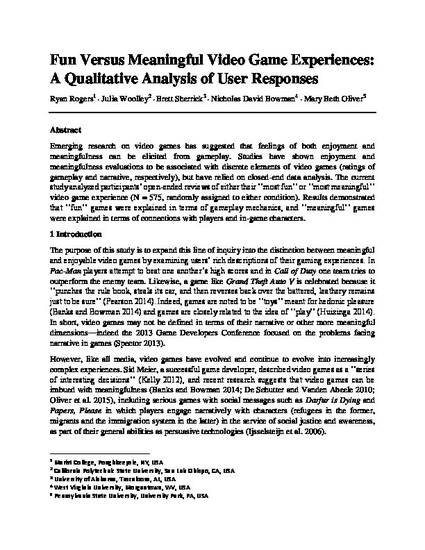
Emerging research on video games has suggested that feelings of both enjoyment and meaningfulness can be elicited from gameplay. Studies have shown enjoyment and meaningfulness evaluations to be associated with discrete elements of video games (ratings of gameplay and narrative, respectively), but have relied on closed-end data analysis. The current study analyzed participants’ open-ended reviews of either their “most fun” or “most meaningful” video game experience (N = 575, randomly assigned to either condition). Results demonstrated that “fun” games were explained in terms of gameplay mechanics, and “meaningful” games were explained in terms of connections with players and in-game characters.
This is a post-print version of an article originally published in The Computer Games Journal, 2016, Volume 6, Issue 1-2.
The version of record is available through: link.springer.com.
Available at: http://works.bepress.com/ryan-rogers/4/
